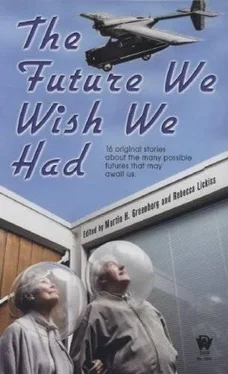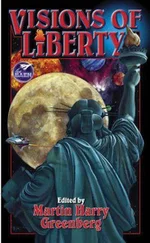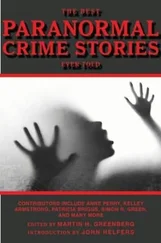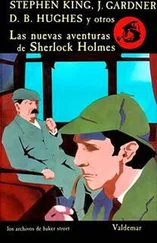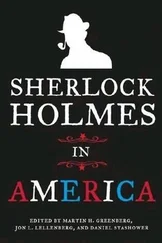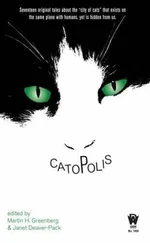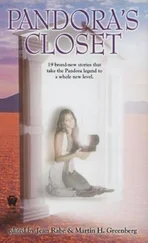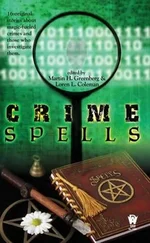But Roger had now proceeded far beyond mere jealousy. He daydreamed of Tweed being caught in bed with a goat. A male goat. Or pitching headlong down a flight of stairs. Preferably made of marble.
Roger thought about quitting his job every day. But he could imagine how it would look on his resume if he had lasted less than six months on his first job. People would think he wasn’t serious about having a career in television. And despite his utter disenchantment with Elwood Tweed, Roger knew that there was no higher calling, that movies and nightclubs could appeal to the lowest common denominator, but television’s purpose was to uplift and educate, to bring serious culture to the masses.
“I’m sorry, Kurt,” Tweed touched Kurt Vonnegut’s sleeve discreetly. “But we have to pause here for a word from our sponsors. But when we return, I want you to hear what you think of those who call your work-pardon the term-sci-fi.”
“Rascals.” Vonnegut yawned. “Critics.”
“We’ll be right back, ladies and gentlemen.” Tweed turned his smile up to broil, and the directorbot cut to a commercial for Steak Pearls, The First Foodtabs With That Home-Cooked Taste.
“One minute, Mr. Tweed.” Roger never understood why Tweed insisted on a count during commercials. “Can I get anyone anything?”
“Yes,” ordered Tweed. “Bring Mr. Vonnegut more water. His glass is almost empty.”
Actually, Vonnegut had taken just one sip during the opening segment. In Roger’s opinion, he would be better off drinking a extra-large latte with a couple of extra shots of expresso. (He looked as though he might nod off at any minute.) But then most of the guests who appeared on The Good Word recently tended to sleepwalk through their interviews. In August, the Understanding Network had switched Tweed ’s slot from the early bird 5:00 to 5:15 AM to the late night 12:45 to 1 AM. Tweed continued to insist that the show remain live-“After all, this is television,” he intoned, “and as my pal Ed Murrow likes to say, we must never take the easy way out”-which was too bad for Vonnegut, who looked at 12:50 AM like he was eighty-four going on a hundred and twenty.
“Thirty seconds, Mr. Tweed.”
“Make yourself useful for a change, Allman.” Tweed twisted around in his chair. “I left my readette of Cat’s Cradle in my dressing room. Fetch it up here for me. You will thumbprint it for me, Kurt?”
“That book is not science fiction,” Kurt Vonnegut muttered. “I don’t write science fiction.”
Roger was happy to get away from the set and (especially) from Tweed. He settled himself in a Pneum-A-Pod and was whooshed down to the eighteenth floor of the Understanding tower. This was where the talent for 24/7, the UN’s morning news, talk, and political science show, had their offices. Sharon Swelter and Bobo Lamonica were just down the hall. Tweed had argued his way down onto eighteen even though the directorbots only gave him three or four Book Banter segments a week. But on eighteen he could bump into the stars of 24/7 and pretend he was one of them. The actual headquarters of The Good Word were way up on sixty-four, which was where Roger spend most of his time when he wasn’t running Tweed ’s errands.
The carpetmoss on the floor of Tweed’s office gave off an earthy deep woods scent that Tweed liked to tell people reminded him of Thoreau’s Walden, although Roger was pretty sure that Tweed had never been north of Yonkers. Tweed ’s rosewood desk was slightly bigger than the cubby where Roger worked. The walls were decorated with holos of the host in the reluctant embrace of some of his most famous guests: Judy Blume, Gore Vidal, Joyce Carol Oates, and James Michener. There were two of Tweed with J.D. Salinger, who had become something of a publicity hound since the release of the videogame version of House of Glass .
Tweed ’s desk and credenza were piled high with gaudy readettes, most of them still unread in shrink-wrap. Roger sorted through them, searching for Cat’s Cradle . Every now and then he would find one he was certain Tweed wouldn’t miss, like the latest Ursula Le Guin historical, or the sequel to Nineteen Eighty-Four . As he looked, he tried not to listen to the desktop, on which played the live feed from the studio up on the ninety-fourth floor. Tweed was browbeating a weary Vonnegut.
“… fantasy, romance, thrillers-sheer vulgarity, in my opinion, and I’m not ashamed to say it. Don’t you agree, Kurt, that the people who control our publishing houses ought to be ashamed of the way they have dragged American letters into the gutter, have foisted popular hacks like Kelly and Resnick, Kessel and Malzberg off on them while publishing only two Pynchon books in the past decade? Don’t they have the responsibility, nay, the obligation to publish works of fiction that ennoble us?”
Vonnegut squinted suspiciously into the studio lights. “All my aliens are metpahors.”
“Obviously, Kurt. I quite agree. But does it bother you that an innocent reader, say some bright thirteen-year-old boy, might mistake your work for sci-fi?”
“Doris Lessing.” Vonnegut picked up his water glass, considered it and intoned, “Margaret Atwood.” He sipped.
“Rog, what are you doing here?”
As Roger spun around, he knocked over a stack of readettes haphazardly piled on top of Tweed ’s brushed titanium IBM File-O-Matic. He managed to snag three in midair, but the rest clattered to the floor. One of those in his grasp was Cat’s Cradle .
“Your clueless boss is live, Bookboy.” Doreen Best grinned at him from the doorway. “Shouldn’t you be up in the studio getting ready to wipe his nose?”
Doreen Best flustered Roger in just about every way possible for a woman to fluster a man. It started with her looks. While not exactly beautiful, she was inarguably striking. Doreen was taller than Robert by a head. She had a dancer’s long body; when she was eighteen she’d appeared in the chorus lines of Stephen Sondheim’s The Cherry Orchard and Andrew Lloyd Webber’s Treasure Island . Some people might have said that her neck was too long or her nose was too stubby, but Roger was not one of them. He usually tried not to look directly at her, because every glimpse seemed to sear itself into his memory and return to haunt him at odd moments, especially just as he was trying to fall asleep.
Then there was the fact that Doreen had been working for the Understanding Channel for almost seven years, which always made him feel like the total neophyte that he was. At various times she’d been on the production staffs of shows like 24/7, Protons and Planets, Pan Am Broadway Showcase, Yesterday Today, Poet’s Theater, March of Progress, and Impact!, and had even spent a few months working with Edward R. Murrow, whom the network had lured away from CBS with the promise of a weekly fifteen minutes of prime-time for It’s Bad For You, his anti-smoking show. And, more than anything else, her attitude toward television in general and the Understanding Network in particular flustered him. Sometimes she seemed too cynical about TV’s momentous enterprise, which Roger believed-no, knew -nothing less than the cultivation of the human spirit. And when it came to the day-to-day of the UN, she was usually more interested in office gossip than the quality of the programming.
But what flustered Roger most about the glamorous Doreen Best was that she seemed to be taking an interest in him.
Now she crossed the carpet moss to where he stood goggling at her and gently tapped his chin, encouraging him to shut his open mouth.
“Let me try again, Bookboy, this time in English.” She pressed a finger into his chest. “You are here .”
Читать дальше
